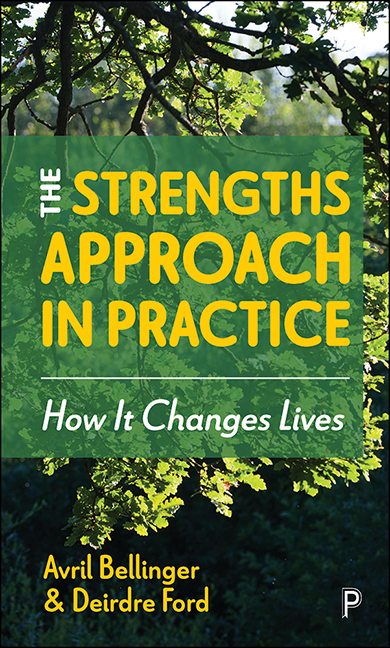Book contents
- Frontmatter
- Dedication
- Contents
- List of figures, tables and boxes
- About the authors
- Acknowledgements
- Preface
- Introduction: The strengths approach in a global emergency
- 1 A strengths approach to human need
- 2 A strengths approach to law and policy
- 3 A strengths approach to organisational development
- 4 A strengths approach to governance and management
- 5 A strengths approach to funding an NGO
- 6 A strengths approach to research
- 7 A strengths approach to student learning
- 8 A strengths approach to growing community
- 9 The strengths approach in practice: how it changes lives
- References
- Index
Introduction: The strengths approach in a global emergency
Published online by Cambridge University Press: 15 September 2022
- Frontmatter
- Dedication
- Contents
- List of figures, tables and boxes
- About the authors
- Acknowledgements
- Preface
- Introduction: The strengths approach in a global emergency
- 1 A strengths approach to human need
- 2 A strengths approach to law and policy
- 3 A strengths approach to organisational development
- 4 A strengths approach to governance and management
- 5 A strengths approach to funding an NGO
- 6 A strengths approach to research
- 7 A strengths approach to student learning
- 8 A strengths approach to growing community
- 9 The strengths approach in practice: how it changes lives
- References
- Index
Summary
The strengths approach (Saleebey, 2009) is a way of thinking about social problems that harnesses the strength and potential of people, their communities and environment, even in conditions of the most depleted social capital. In times of austerity and the dismantling of the welfare state, it has much to offer anyone seeking to maintain hope and optimism.
People are conditioned to identify problems, target them and propose solutions in the belief that the answer always lies in taking more control. In contrast, the strengths approach requires a departure from positivist thinking and a stance more aligned to that of deep ecology (Naess, 1973):
• acknowledgement of the depth and severity of the challenges;
• respect for all parts of the system, from microbe to constellation; and
• trust in the potential for true sustainability.
The strengths approach offers a way of thinking and acting that goes beyond mere mitigation. It is a holistic practice that, as illustrated in the chapters of this book, is indeed sustainable.
In our own practice as social workers we have found that the strengths approach has often been misrepresented and superficially applied in a manner that belies its value base. While it has been incorporated into the lexicon of theories taught on professional courses, the strengths approach has been significantly marginalised in favour of more empirical, positivist methods that focus on problems and pathology in order to find cause-and-effect responses. The current focus on it in UK policy and practice, however, has prompted many writers to rediscover its considerable influence in other theories, methods and models of intervention. At worst, it is the latest approach to be appropriated and colonised in serving the neoliberal agenda as a cost-cutting panacea, similar to the fate of concepts like resilience or solution-focused models. It is increasingly urgent, therefore, to reconsider the strengths approach and really understand it.
Being prepared to face the reality of our condition is fundamental to the approach. Much of that reality gives cause for hopelessness. Humans continue to devastate the planet with wars and extractive commercial activity. Compelling, well-founded critiques of UK welfare services encompass the impact of capitalism, neoliberalism, austerity and the removal of the welfare floor for growing numbers of people.
- Type
- Chapter
- Information
- The Strengths Approach in PracticeHow It Changes Lives, pp. 1 - 10Publisher: Bristol University PressPrint publication year: 2022



